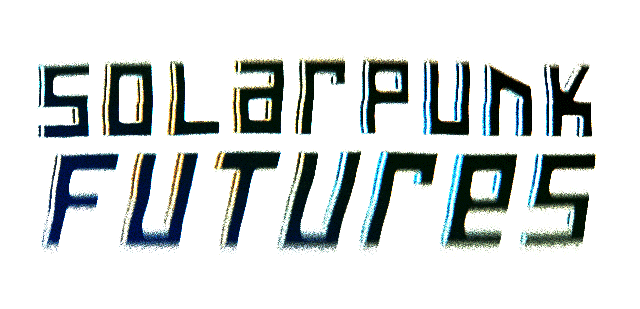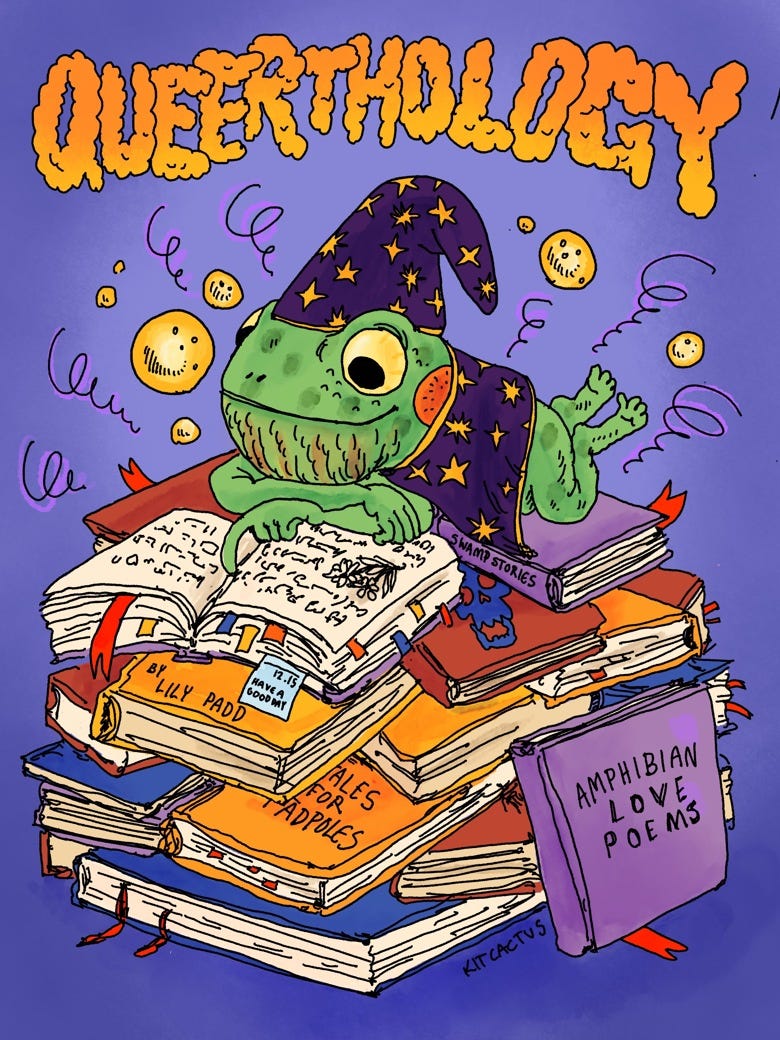Midway Check In: Afterglow: Climate Fiction for Future Ancestors
we gotta mobilize, organize, strategize, de-program our minds
Yo, wake up! We gotta mobilize, organize, strategize, de-program our minds and become the ultimate love gangsters in this business.
What are you even talking about?
We gotta be conscious, man! Eco-conscious, culturally conscious, health-conscious. fashion-conscious, self-conscious-
Yeah! Self-conscious! I’m that, uh, I thought that was a bad thing?
Nah man, conscience of self!
CONSCIOUS SHIT by Fungineers
Schedule
These are the dates the discussion posts will go up, but remember you can go at your own pace and contribute when you’re ready!
Kick-off: August 4, 2023✓Midway Check In: August 18, 2023✓Final Discussion: September 1, 2023 at 5PM PST 🌱
You can RSVP for the Digital Hang here - This means you get an email with the link to join on the day of and gives me a good idea of how many folks to expect!
If you can’t make it to the digital hang, you can always use the comment section to leave your thoughts, reviews, and reflections at any time.
Flawed but Hopeful
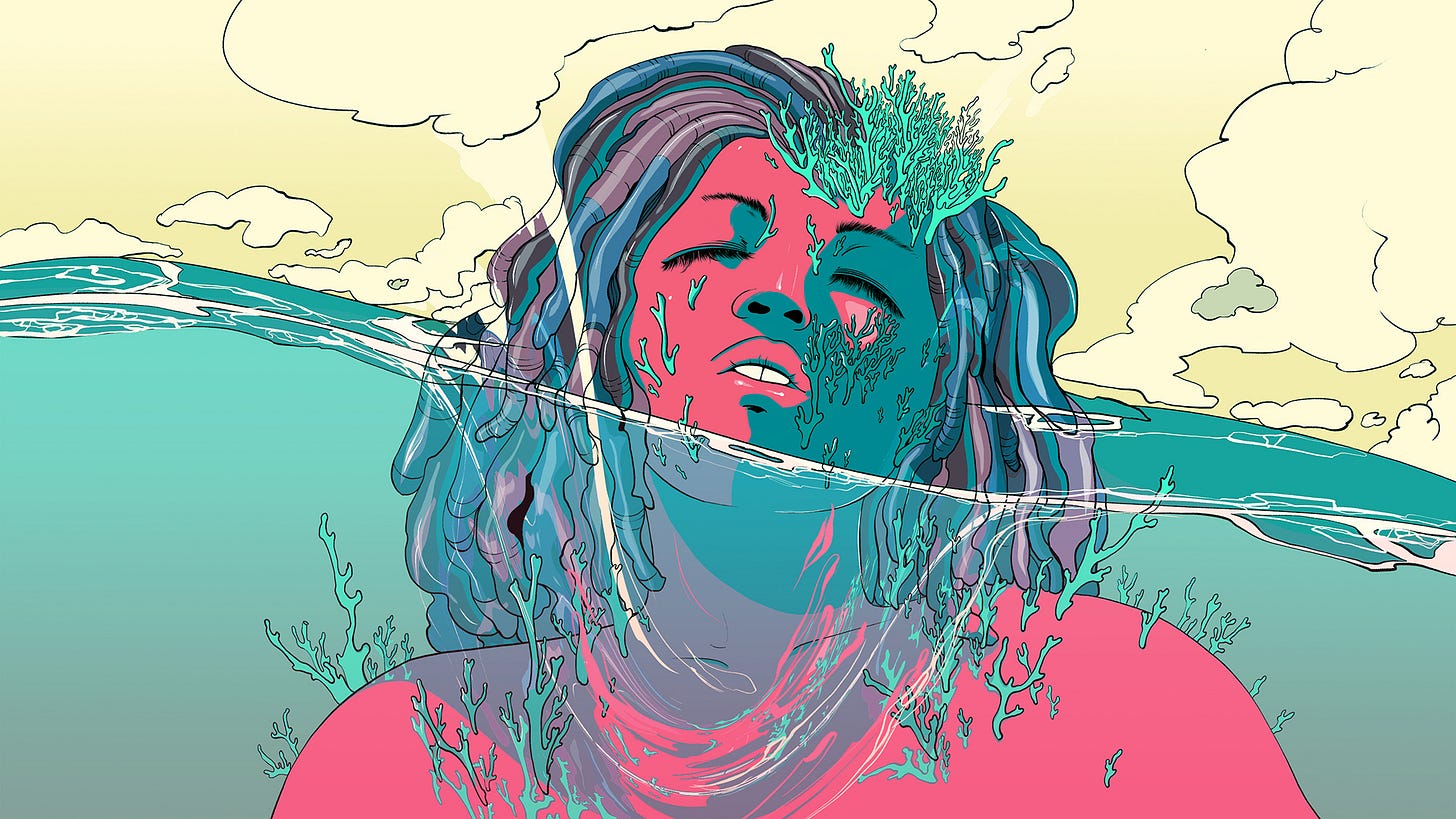
Before it was a book, Afterglow was part a short story competition. The idea grew out of conversations with climate and justice leaders. Initially those talks were meant to be in person at a retreat but that migrated online due to the pandemic. The conversations about what life would look like 180 years into the future brought about the idea to create a short fiction contest.
Tory Stephens, network weaver at Grist’s Fix Solutions site, explains what they were looking for over in the article How Imagine 2200 came to life:
We created the Imagine 2200: Climate Fiction for Future Ancestors contest to celebrate short stories rooted in environmental justice and climate solutions, while amplifying voices that have been, and continue to be, affected by systems of oppression, including structural racism and white supremacy; settler colonialism; heteronormativity; xenophobia; misogyny; and ableism. We invited writers in the genres that gave me such inspiration to come play with us and showcase what is possible with climate fiction.
When the open call was made, the team expected maybe 300 stories, but instead they received thousands of submissions. Talking with Clarkesworld Stephens explains the challenges of receiving such a huge amount of stories and the process by which the winners were selected. From Intersectional Communities: A Conversation with Tory Stephens:
Reading one thousand and one hundred stories in an equitable way was a huge challenge. We were not ready for that many stories. We projected that three hundred stories would come in and were totally caught by surprise when over a thousand stories were submitted…. One thing that really stood out was how much thoughtful discussion and debate went into this—there were different perspectives and viewpoints and some passionate defense of stories that didn’t click for others….It was such a treat being in these conversations. Like being in an amazing story club with all these brilliant people.
I think what strikes me the most about learning about Afterglow’s conception and development is how Stephens and everyone involved encompassed all the things that I learned about the vision of solarpunk stories. Things are not quite perfect in the worlds created in each of the stories. Most of them are dealing with some sort of climate disaster. There are differences in opinion, even arguments, but characters continue to move forward, incorporating technology in a variety of ways.
The author of the story Afterglow, Lindsey Brodeck, talked about this with Artists and Climate Change:
I’m hopeful that my story communicates the need to think creatively, and on multiple levels. What can we do right now in our communities? How can we change our relationship with nature, and how does language factor into that relationship? What is our collective vision for a just and regenerative world, and how can we get there? There is no one right way to tackle the climate crisis, but one thing is for certain: everyone has (and must have) a role to play in imagining and crafting a better future.
When asked about the role of fictional storytelling in public conversations about the climate crisis she says:
Writers have the power to create new ways of seeing and sense-making, and cli-fi is especially powerful because we can give readers tangible ideas of what a more climate-just future could look like. It’s pretty amazing – even magical – that storytellers can use words to combat climate doom, and create resilient characters living in flawed-but-hopeful worlds.
You can find more stories and articles from Grist here, including ones that were submitted for later climate fiction short story competitions.
Roleplay the Future
I think that roleplaying games are a unique way of immersing yourself in a world and trying out new ideas. There are a few games already exploring the concept of solarpunk either directly or indirectly.
There is Terra Nil, an environmental strategy game about transforming a barren wasteland into a thriving, balanced ecosystem. Cloud Gardens where you harness the healing power of nature to overgrow urban decay within wasteland dioramas. The Kickstarter game Solarpunk, which is a cozy survival game in a technically advanced world of floating islands. Solarpunk Academy is a visual novel game about mental health, superpowers and a new way of life.
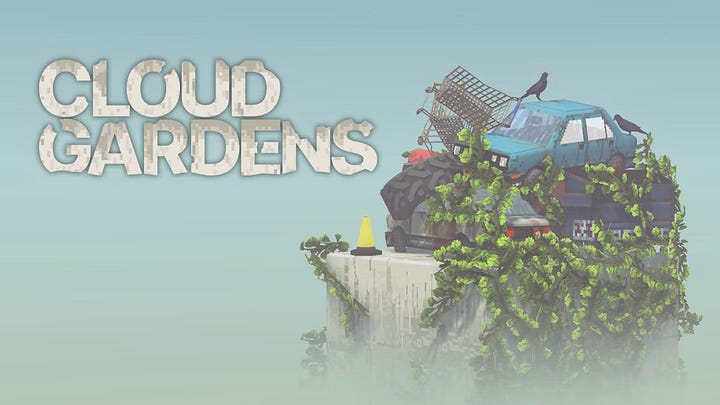
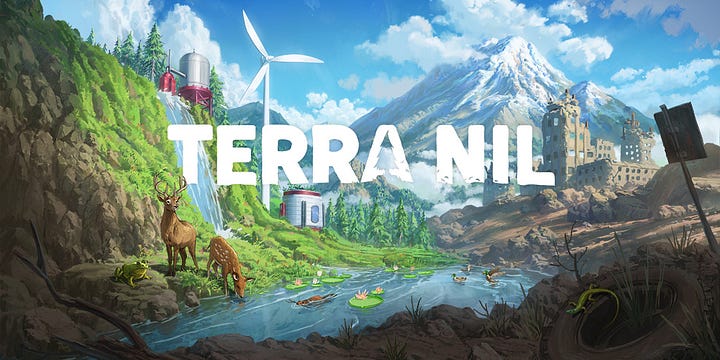
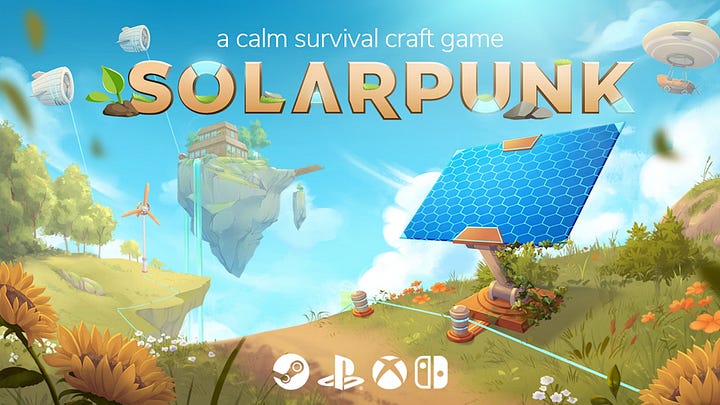

If you’re looking for something akin to one of the communities in the Afterglow anthology and you are a fan of tabletop roleplaying games, then I’d suggest Solarpunk Futures:
Solarpunk Futures is a storytelling game where players imagine the pathways to a desirable world from the perspective of a utopian future. Players use a deck of cards to remember Ancestors and work together using Tools and Values to overcome a set of real-world Challenges. Through dialogue and collaborative worldbuilding, collective and visionary narratives emerge of a new society, along with plausible scenarios for how to get there.
You can download the playbooks and cards for free or you can play it on a tabletop simulator on Steam.
Welcome to the Midway Check In 📖 Afterglow: Climate Fiction for Future Ancestors
These are simply questions to get you thinking. You’re not required to answer any of them to participate. Remember to keep comments and replies respectful and hate-free!
Your Reading So Far
How is your reading going?
Are you reading in order or jumping around?
Are you able to clearly imagine any of the futures portrayed in the book?
Have you been able to write down any thoughts, journal, draw, etc. as you read?
Thoughts and Feelings
Are there any stories you already know will be your favorites?
Are there any stories that have resonated with you very strongly?
Have any of them left you feeling more hopeful about your role as a future ancestor? Have any of the stories eased any feelings linked to climate anxiety or not?
How do you think you’ll feel once you are done reading?
How else would you like to explore solar or other punk ideas?
Which one, if any, of the games mentioned are you interested in playing?
Know of any other games that align with Afterglow’s vibe? Let me know!
Don't forget to leave a comment and ♥ this post.
See you at the final discussion 🌱




